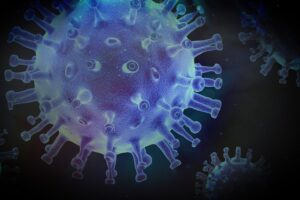
In the last month, several new strains of Covid-19 have been identified around the world. The UK was the first to announce a new variant, which resulted in tougher restrictions.
Although mutations in coronavirus diseases are common, SARS-CoV-2 has been relatively slow to change. However, as this is potentially fatal in some groups, it raises concerns.
Here’s everything we know so far about the new variants:
1. UK variant
The UK was the first country to announce a new variant of Covid-19. In December, health officials discovered it transmitted more rapidly than before and could be more dangerous.
One of the biggest differences in this new variant is the mutation “N501Y”. This affects the receptor-binding domain of the spike protein, which is how the virus binds with cells.
This mutated version of the virus is quickly replacing the old one and has meant stricter lockdowns and new travel restrictions to avoid it spreading. However, according to the WHO, there are now known cases of this strain in 70 countries.
2. South Africa variant
The South African variant of the virus was also detected in December and has quickly spread across the country this month.
This variant is different from the one found in the UK, although there are similarities. For example, both variants share the N501Y mutation found in the spike protein.
3. Brazil variant
Following this, on 10th January, health officials in Japan identified a new variant of Covid-19 that originated in Brazil. It was found in a group of travelers and contained 17 unique changes.
A study found that 42% of samples collected in Brazil contained the new variant, which has two of the same spike protein changes as the cases found in South Africa.
4. California variant
The latest mutation has been found in California. After the new variant in the UK was announced last year, scientists in the state have been carrying out research of samples.
Whilst looking for cases of the UK strain, they found that another coronavirus variant has emerged in California, which is known as CAL 20C.
This variation accounted for over half the samples collected in mid-January, although there’s no evidence that it is more contagious or lethal than other forms of the disease.
Will the vaccines be effective?
One of the key concerns faced by scientists is whether vaccines will be effective on the new variants. It’s believed that if the entire population has both doses of the vaccine, it would be difficult for the virus to spread.
However, if a lot of people don’t get vaccinated, or a large percentage of people only have a single dose, there’s a high chance of the virus mutating further.
Manufacturers of the vaccines are already working on adapting them to account for the new variants. And, additionally, most governments are introducing new restrictions to stop the spread of mutated forms of the virus, which could be more contagious.



